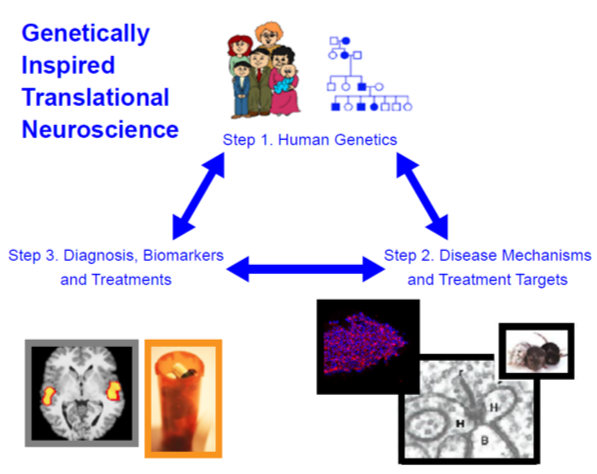About

The CTN, with a central location on the third floor of the Laboratories for Molecular Medicine (LMM) at 70 Ship Street, is developing an infrastructure for translational neuroscience research. The LMM is located mid-way between College Hill and the Brown affiliated hospitals, and it is juxtaposed to the Warren Alpert Medical School at 222 Richmond Street. The CTN infrastructure is available to all Carney Institute and BITS-affiliated faculty interested in solving problems related to brain disease.
CTN's initial disease areas of focus are autism, epilepsy, Alzheimer’s disease, psychiatric disorders (schizophrenia, stress), and rare genetic diseases. Ongoing research projects include:
- Studies of epilepsy in rare genetic and metabolic disorders
- Studies of rare genetic disorders in autism
- Studies of endolysosomal disorders across the lifespan with relevance to Alzheimer’s disease
- Multi-site clinical network study of Christianson syndrome
- Molecular profiling of focal epilepsy
- Circuitry analysis of circadian epilepsy
- Comorbid autism and epilepsy in tuberous sclerosis complex
- Studies of rare genetic disorders
- Study of 17q12 CNV disorder with relevance to autism and schizophrenia
Community outreach initiatives include the International 17q12 CNV Disorder Conference 2019 and participation in the biannual Christianson Syndrome European Conference.
Mission
The mission of the CTN is to advance knowledge of the pathogenesis of brain disease and to translate this knowledge to improved clinical outcomes for families affected by brain disease. The mission has an emphasis in research and training related to deciphering disease pathogenesis, identification of new targets for molecular interventions, and development of improved diagnostics and biomarkers.
The CTN aims to serve families affected by brain disease by translating research from bench to bedside, and to establish infrastructure to harness powerful genetic, molecular, and cellular methods to tackle brain disease.
In order to achieve the CTN mission, our primary objectives are:
- To coalesce multidisciplinary teams to bridge between campus-based basic science researchers and hospital-based clinical neuroscience programs.
- To establish a shared infrastructure for translational research.
- To train students and physician-scientists in translational science.
- To enhance community engagement in translational neuroscience through family participation in patient-oriented research and scientific symposiums.
The founding director for the Center for Translational Neuroscience is Eric Morrow M.D. Ph.D. The associate director is Judy Liu M.D. Ph.D."
